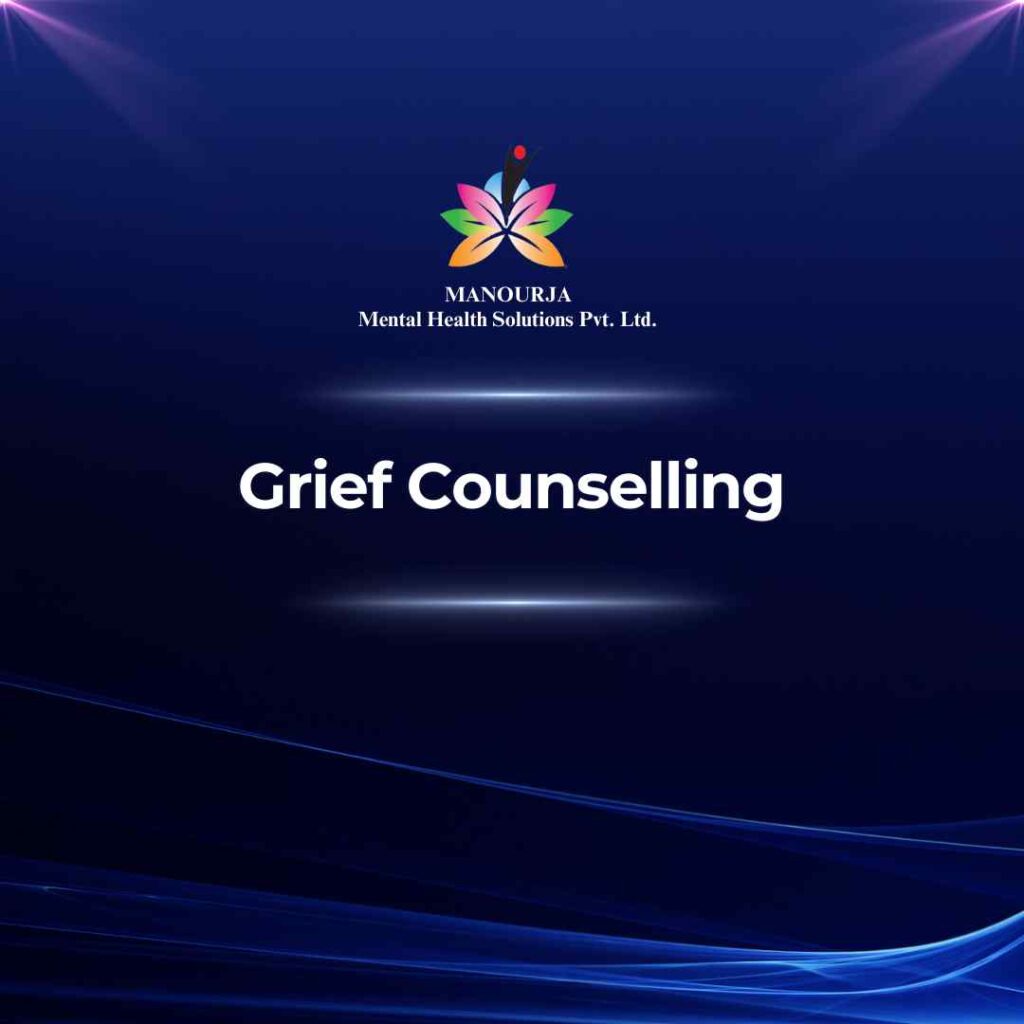Grief Counselling

Grief is a natural response to loss, particularly the death of a loved one, but can also result from other forms of loss such as the end of a relationship, losing a job, or significant life changes. The grieving process is highly individual, with symptoms manifesting differently among people.
Common Symptoms of Grief Include
- Emotional Numbness: Feeling detached or unable to connect with emotions.
- Intense Sadness: Profound sorrow and longing for the deceased or for what has been lost.
- Anger: Feelings of anger or irritability, which may be directed towards the situation, oneself, others, or even the deceased.
- Guilt: Feelings of regret or guilt over things done or not done with or to the deceased.
- Difficulty Concentrating: Trouble in focusing on tasks or decisions making.
- Physical Symptoms: Includes fatigue, changes in appetite, or sleep disturbances.
- Social Withdrawal: Pulling away from social activities or relationships.
These symptoms can disrupt daily life and lead to a profound impact on one’s overall well-being.
How Counselling Effectively Treats Grief
Counselling provides crucial support for individuals experiencing grief, helping them understand and process their emotions, and guiding them towards healing.
- Individual Therapy: Offers a safe space to express and explore feelings of grief and loss, helping individuals process their emotions without judgment.
- Group Therapy: Connects individuals with others who are experiencing similar losses, providing communal support and reducing feelings of isolation.
- Cognitive Behavioral Therapy (CBT): Helps to address any unhelpful patterns of thinking that may be complicating the grief process, such as feelings of guilt or blame.
- Narrative Therapy: Encourages individuals to tell their story of loss and grief, helping them make sense of the events and integrate the experience into their life narrative.
- Family Counselling: Assists families in understanding each member’s unique grieving process and improves communication to support each other through the loss.
Steps Followed in MANOURJA for Counselling of People with Grief
- Initial Assessment: A comprehensive evaluation to understand the nature of the loss, the individual’s current emotional state, and their personal and family history with grief.
- Goal Setting: Working together to establish goals that focus on processing grief, adjusting to life after loss, and planning for the future.
- Development of a Personalized Treatment Plan: Creating a tailored plan that incorporates suitable therapeutic modalities based on the individual’s needs and preferences.
- Regular Counselling Sessions: Engaging in scheduled sessions that focus on exploring and expressing feelings of grief, learning coping strategies, and gradually adjusting to life changes.
- Continuous Evaluation and Adaptation: Regularly assessing the effectiveness of the therapy and making necessary adjustments to ensure the individual is supported appropriately through their grieving process.
Through these Counselling strategies, MANOURJA aims to support individuals in navigating their grief, fostering a process of healing that respects their unique experience of loss, and helping them to find a new sense of equilibrium and purpose.
“Each new dawn offers a gentle reminder that hope and strength are quietly building within you, day by day.”
